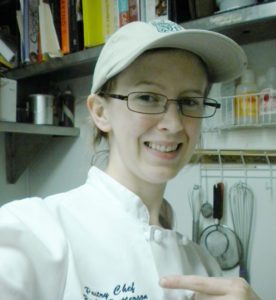When meeting someone for the first time, there is this one seemingly innocent question that always gets asked. It’s an icebreaker, a fall-back when you have no idea where to start.
“So, what do you do?”
Your kids hit it off, so maybe you’ll find common ground with their parent. Or maybe it’s from a random stranger making idle chit-chat.
“What do you do for work?”
This fundamental piece of information speaks a lot about a person. Obviously, they chose to do this one thing for (give or take) eight hours a day, so it must mean something to them.
“What do you do during the day?”
If the encounter takes place during “business hours” the question could be a little more pointed. A mom (or dad) out with a young child or two might raise assumptions.
“Do you work?”
That last phrase has fallen out of fashion somewhat, for good reasons. Many stay-at-home parents will quickly correct you and rightfully so. They do work. Childcare is a full-time (and then some) job. Of course, traditionally-working parents shoulder the childcare job, too.
But the difference between whether or not you receive a W-2 on top of parenting is not what I’m here to discuss.

Q: Do I work?
A: Not in the traditional sense anymore… it’s complicated.
Q: Do I stay home?
A: Yes, but not how you likely imagine it. I’m home, but my kids are not.
Q: So… what do you do, then?
A: I do a lot. Right now, much of my day is a precarious balance of house chores and lots of rest. Ok, “lots of rest” seems like the opposite of “I do a lot.” I get that… but I do as much as my body allows me to do. Most days, a few house tasks IS a lot, especially on days with bad symptom flares.
I have a chronic illness and I do as much as I can. That is what I do.
Isn’t that what everyone does – as much as they can?
Some of my days are filled up with tasks that the majority of the population doesn’t have to do very often. Navigating doctor’s appointments, going to physical therapy, troubleshooting insurance coverage issues, or researching time-sensitive international shipping regulations. You know, just your average “professional patient” type of work-tasks.
If you see me out of the house, know that multiple hours of planning went into that effort. If I seem fine, trust me when I say I’m still sick (I just did a good job resting beforehand.) When I get back home, I’ll likely go into a full-blown mental and physical crash. Have you heard of the spoon theory? (Read the full story here, or the quick version here.) Congratulations, I’ve chosen to use my limited energy to interact with you!
In recalibrating my expectations of what my body can accomplish in a day, I’ve come to this conclusion: Can we re-think the “what do you do” question? “Do you work?” has more than a binary yes/no answer.
We all have jobs – responsibilities to fulfill for ourselves or other people. Let’s figure out a new way of asking each other about them.












